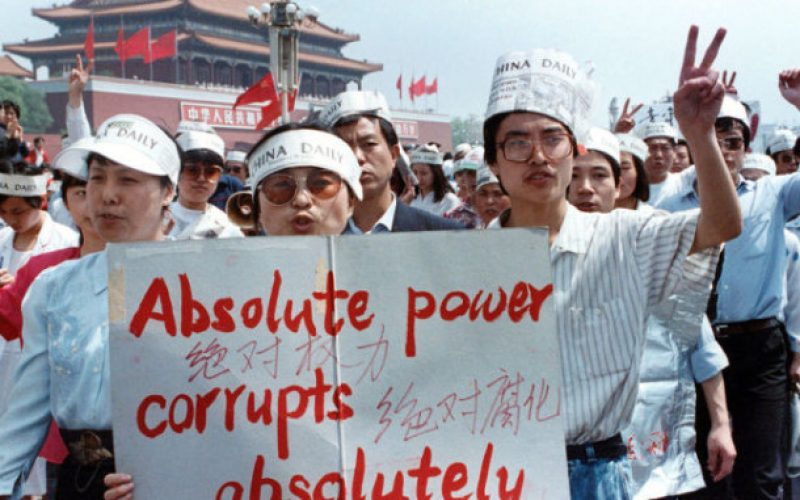Fear is sweeping through the campuses of China’s elite universities following a nationwide government crackdown aimed at silencing left-wing student activists, who had been campaigning for greater rights and protections for ordinary workers.
Since August at least nine young Chinese labor advocates have been forcibly detained in major cities across the country, a sharp escalation in Beijing’s campaign against student activism on university campuses.
“The whole of Peking University is like under the white terror now, (the security guards) will come after you even if you were just at the scene where the student activists were distributing leaflets,” a student at the prestigious Peking University told CNN Tuesday.
On Friday, one graduate, Zhang Shengye, was attacked and dragged into a car at the Beijing university by several people in black jackets, according to a widely circulated open letter.
“Someone used his arm to put me in a headlock and pushed me forward … My glasses were missing in the chaos, and I was pressed to the ground,” the letter writer and fellow activist, Yu Tianfu, said.
“I struggled to say, ‘Who are you? Why can you do such a thing?’ A man pointed to my head before I could finish and said ferociously, ‘Stop shouting otherwise I will beat you again.'”
A grassroots student movement, led by activists labeling themselves Marxists and calling for greater workers’ rights, has become a growing problem for the Chinese government in recent years.
Under Chinese President Xi Jinping, Beijing has increasingly cracked down on all forms of dissent, including human rights activists, labor groups and religious organizations.
Activists and analysts have pointed out the irony of the socialist Chinese government, led by the theoretically pro-worker Communist Party, cracking down on young Marxists.
Xi in particular has been enthusiastically pushing the country to embrace its Marxist roots following his ascension to the head of the Communist Party in 2012.
Eli Friedman, an associate professor of international and comparative labor at Cornell University who has been in contact with the Chinese student groups supporting workers’ rights, said the crackdown would only serve to undermine the party’s legitimacy. “What is socialism if not standing with the workers?” he told CNN.
Student solidarity
The growing crackdown has its roots in a labor dispute in southern China, beginning in June, where a group of workers at Shenzhen’s Jasic Technology called to set up a trade union.
The government declined their request and, after a month of petitioning, dozens of workers were detained by police in July, according to the group. Others claimed they were beaten by security personnel while protesting.
On July 29, a group of left-wing students, proclaiming themselves Maoists, traveled from around the country to join in the protests, drawing national attention.
One Peking University graduate, Yue Xin, published an open letter calling for students at universities across China to join in supporting the workers and sign a petition.
But as public attention grew, the government quickly tightened the net around the young protesters. On August 11, one of the main organizers, Shen Mengyu, a graduate of Sun Yat-sen University, another elite school in southern China, was detained by a group of unidentified men.
Yue disappeared on August 24, along with a number of her fellow students. No official arrest reports have been announced yet by police and neither Shen or Yue have been seen since.
Following their disappearance, a group of alumni and students at Peking University set up the “Finding Yue Movement” to lobby for the graduates’ release. One of the organizers, Zhang, was among those who disappeared in the past week.
“There is a pervasive sense of fear particularly after what happened in Peking University a few nights ago … (Zhang’s) crime was essentially to draw attention to the fact that another student had disappeared,” Friedman, the American professor, told CNN.
‘Wave of repression’
Friedman’s university, Cornell, cut ties with China’s Renmin University in October over growing questions around academic freedom in the country, as well as concerns for the safety of exchange students.
“The wave of repression we’re in is not just the last few weeks. It’s a very conscious strategy on the park of the state to close a space for academic freedom,” he said.
Friedman said Chinese students were being strongly pushed to study Marxism in universities, in juxtaposition to banned Western ideologies considered dangerous by the government, such as democracy or liberalism.
“Now they’re taken it to heart, the government is cracking down quite significantly. In some ways, this is the government’s own making,” he said.
The arrests came shortly after the arrival of a new Communist Party chief at Peking University, Qiu Shuiping, who was formerly the top state security official in Beijing between 2013 and 2014.
Analysts at the time pointed to Qiu’s appointment as an indication the Communist Party wanted to pull the student community at the university into line.
Despite the disappearances and the attacks, not all the left-wing activists are giving up. Renaming their group from “Finding Yue Movement” to the “Missing Peking University Alumni Watchers,” labor rights advocates released another open letter on Sunday calling for their former members’ release.
“We can’t let those who collected firewood for others be frozen to death in the snow, and we can’t let those who created the path of freedom be trapped in the thorns,” the letter said.
Source:KESQ
Image Courtesy:Global Risk Insight
You may also like
-
Beware! Chinese Hackers are Using VLC Media Player to Spy on You
-
Israel Participates in US Mideast Naval Exercise wih Saudi Arabia and Oman – IMX 22
-
Pakistani Establishment Controlling ‘Family Business’ of Selling Kashmir Narrative, Uses Issue as Survival Strategy: Report
-
After Suspending Twitter ‘Indefinitely’, Nigerian Govt Joins Made-In-India Microblogging Platform ‘Koo’
-
Pam Gosal, First Indian-Origin Woman to be Scottish Lawmaker
